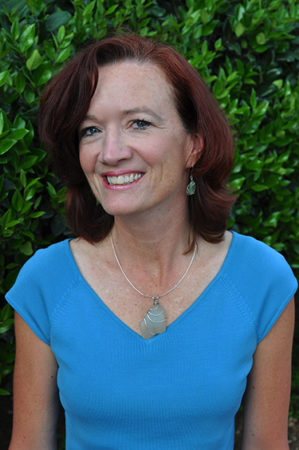Kim Updegrove, executive director of Mothers’ Milk Bank, is fulfilling her mission to save the lives of countless preterm babies.
By Alessandra Rey
 When Kim Updegrove picked up the newspaper one morning in Austin, she never knew a simple print ad would change her life. The year was 2001, and Updegrove and her husband had just moved to Austin. Her timely discovery of an ad in the Austin American-Statesman for a part-time position as a clinical coordinator helped carve out the path to her career today.
When Kim Updegrove picked up the newspaper one morning in Austin, she never knew a simple print ad would change her life. The year was 2001, and Updegrove and her husband had just moved to Austin. Her timely discovery of an ad in the Austin American-Statesman for a part-time position as a clinical coordinator helped carve out the path to her career today.
“After seeing the ad in the paper for a position at the Mothers’ Milk Bank, I called the then-executive director and set up an interview that ended up lasting almost three hours,” Updegrove recalls. “I was hired the next day.”
Prior to moving to Texas, Updegrove worked in the maternal child-health sector for almost 15 years.
“I started out as a hospital nurse and I knew within the year that it wasn’t the role for me. I eventually pursued a degree in public health,” she says.
While completing her degree at Rutgers University in New Jersey, Updegrove was assigned a mentor from Harvard University. The two worked together, conducting research regarding the financial burden of charitable care and bad debt on local hospitals.
“The outcome was that 40 percent of bad debt and charitable care came from maternity care—unpaid costs of having a child,” Updegrove explains. “That seemed like such an atrocity to me that I decided I had to work in maternity child health for the rest of my life.”
After receiving her degree in public health, Updegrove continued on to receive her graduate degree from the University of Pennsylvania School of Nursing, a move reflective of her decision, her driving purpose to help preterm babies.
Fast-forward 16 years and Updegrove is now the executive director of Mothers’ Milk Bank, the largest milk bank in the country. Her latest—and perhaps largest—project involves overseeing the construction of a brand-new, 29,000-square-foot facility, through which the bank will expand its operations.
The milk bank purchased the facility in Central Austin more than a year ago, and the building has been undergoing renovations since November 2016. Since the purchase, the Mothers’ Milk Bank team has raised more than half of its $2.9 million goal. Once complete, the new space will provide state-of-the-art laboratories for processing donated milk, as well as a training center, conference room and children’s play area.
During her time with Mothers’ Milk Bank, Updegrove has been credited with expanding the research program, as well as increasing the number of hospitals the milk bank serves from 45 to 130 hospitals throughout the country. She credits the Austin community for all the development the milk bank has experienced.
“From the beginning, when the milk bank started here in 1999, the city listened to the difficulties families face when they have a preterm infant and how human milk might answer some of those difficulties,” she says.
Updegrove’s team has also lobbied for the passing of legislation that would allow for Medicaid to cover a portion of the costs that come with issuing donor human milk, as well as processing fees.
Since its inception, the milk bank has provided more than 4 million ounces of breast milk for those in need and has also substantially reduced the rate of necrotizing enterocolitis, or NEC, an inflammatory intestinal condition that is the No. 1 cause of mortality among preterm babies.
“NEC causes the tissue to die if the child is born at 3.5 pounds or smaller and not provided human milk,” Updegrove says. “The rate of the condition plummeted under the availability of human milk from donors.”
Updegrove adds the milk bank’s responsibility and commitment to preterm babies is multinational.
“We have a responsibility to not keep our intellectual property private,” she says. “We can’t ignore the fact that there are more people having more babies later in life. The preterm birth rate is more than doubling. We mentor people around the world to establish safe banks [that are]based on our country’s standards but also reflective of their own culture and medical technology.”
After 30 years spent working in the health sector, matched with her extensive experience directing the largest milk bank in the country, Updegrove says her passion for helping those in need often surpasses her business objectives.
“The board of the directors and my staff now are very supportive of the fact that I am a health-care provider first,” Updegrove says. “You matter to me as an individual or a family first before I start operating business processes. We are in this for the people.”

